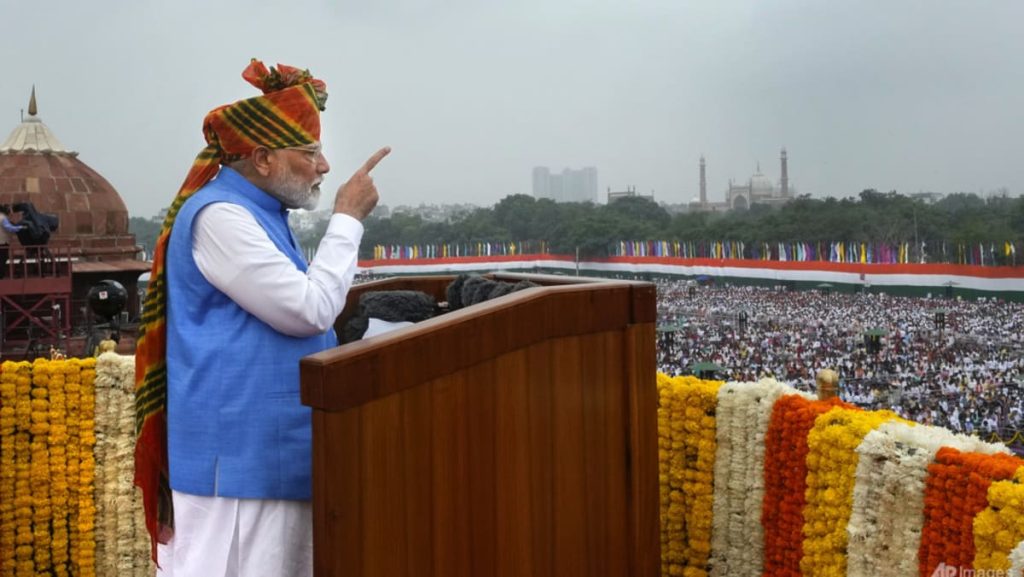Indian Prime Minister Narendra Modi reiterated his commitment to implementing a national common civil code of law, a proposal that has drawn opposition from Muslim activists who see it as an encroachment on their religious freedoms. Currently, India’s legal system consists of a common criminal law, but personal matters such as marriage, divorce, and inheritance are governed by varying laws across different religious communities. The proposed civil code would aim to standardize laws across all communities, but it has faced resistance primarily from Muslim activists and liberals who view it as discriminatory against the largest religious minority in the country.
During his Independence Day address, Modi emphasized the need to unify the country by implementing a secular civil code, declaring that laws that create division based on religion have no place in modern society. He highlighted the importance of equality and unity in a diverse nation like India and called for a national debate on the issue of a common civil code. Modi’s push for a secular civil code aligns with the ideology of his Hindu nationalist Bharatiya Janata Party (BJP), which has been a source of concern for India’s Muslim population, who fear marginalization and discrimination under the government’s policies.
Although Modi secured a third term in office in June, his party faced a setback in the elections, prompting the formation of a coalition government due to a lack of an outright majority. The BJP’s Hindu nationalist rhetoric has raised concerns among India’s Muslim population, which constitutes more than 220 million people. Modi’s call for a national civil code has further exacerbated tensions, with critics viewing it as an attempt to impose Hindu-centric laws on a diverse and multicultural society. The proposed common civil code has been met with resistance and protests from various quarters, highlighting the deep divisions within Indian society over issues of religion, law, and governance.
In his address, Modi urged all stakeholders to participate in the debate surrounding the civil code, emphasizing the need for open dialogue and discussion to address concerns and reach a consensus. The Prime Minister’s remarks reflect the ongoing debate within India over the balance between religious freedoms and the need for a unified legal framework that upholds the principles of equality and secularism. As the country continues to grapple with issues of communal tensions and religious identity, the push for a common civil code raises significant questions about the future of India’s legal system and the rights of its diverse population. It remains to be seen how the government, civil society, and religious communities will engage with this contentious issue and work towards a solution that reflects the country’s pluralistic ethos and commitment to justice for all its citizens.
In conclusion, Prime Minister Narendra Modi’s call for a national common civil code has ignited a debate on the balance between religious freedoms and the need for a unified legal framework in India. The proposed civil code aims to standardize laws across all religious communities but has faced strong opposition from Muslim activists and liberals who view it as discriminatory. Modi’s push for a secular civil code aligns with the ideology of his Hindu nationalist party, raising concerns among the country’s Muslim population. The issue highlights the deep divisions within Indian society over questions of law, governance, and religious identity, underscoring the challenges of fostering unity in a diverse and multicultural nation. The call for a national debate on the civil code reflects the complexities of navigating religious and cultural diversity while upholding the principles of equality and secularism in India’s legal system.















